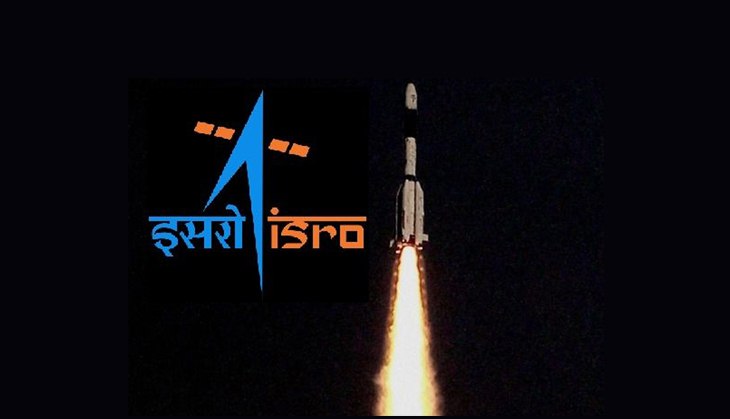ISRO performs 3rd lunar-bound orbit maneuver for Chandrayaan-2
With just 11 days to go for its moon landing, the Indian Space Research Organisation on Wednesday said it has successfully performed the third lunar-bound orbit manoeuvre for Chandrayaan-2 spacecraft. All spacecraft parameters were normal, the city-headquartered space agency said after the manoeuvre on the spacecraft that is currently in the lunar orbit for its rendezvous with the Moon.
"Third Lunar bound orbit manoeuvre for Chandrayaan-2 spacecraft was performed successfully today (August 28, 2019) beginning at 0904 hrs IST, using the onboard propulsion system. The duration of the manoeuvre was 1190 seconds. The orbit achieved is 179 km x 1412 km," ISRO said in an update. "All spacecraft parameters are normal.
The next Lunar bound orbit manoeuvre is scheduled on August 30, 2019, between 1800 - 1900 hrs IST," it said. In a major milestone for India's second Moon mission, theChandrayaan-2spacecraft had successfully entered the lunar orbit on August 20 by performing Lunar Orbit Insertion (LOI) manoeuvre. After performing second lunar bound orbit manoeuvre on August 21, ISRO had released two sets of pictures of the moon captured by the spacecraft.
There will be two more orbit manoeuvres to make the spacecraft enter into its final orbit passing over the lunar poles at a distance of about 100 km from the Moon's surface. ISRO has said subsequently the lander would separate from the Orbiter (on September2) and enter into a 100 km X 30 km orbit around the Moon. Then it would perform a series of complex braking manoeuvres to soft-land in the South polar region of the Moon on September 7, 2019.
ISRO Chairman K Sivan has said the proposed soft-landing on the Moon is going to be a "terrifying" moment as it is something ISRO has not done before, whereas LOI manoeuvre was successfully carried out during the Chandrayaan-1 mission.
The health of the spacecraft is being continuously monitored from the Mission Operations Complex (MOX) at ISRO Telemetry, Tracking and Command Network (ISTRAC) in Bengaluru with support from Indian Deep Space Network (IDSN) antennas at Bylalu, near Bengaluru, the space agency has said. India's Geosynchronous Satellite Launch Vehicle, GSLV MkIII-M1 had successfully launched the 3,840-kgChandrayaan-2 spacecraft into the earth's orbit on July 22.
Following the landing, the rover 'Pragyan' will roll out from lander 'Vikram' and carry out experiments on the lunar surface for a period of one lunar day, which is equal to 14 earth days. The mission life of the lander is also one lunar day, while the orbiter would continue its mission for a year. The orbiter carries eight scientific payloads for mapping the lunar surface and study the exosphere (outer atmosphere) of the Moon while the lander carries three scientific payloads to conduct surface and subsurface science experiments.
The rover carries two payloads to enhance the understanding of the lunar surface. India's second lunar expedition -- would shed light on a completely unexplored section of the Moon, it's South Polar region. According to ISRO, the mission objective of Chandrayaan-2 is to develop and demonstrate the key technologies for end-to-end lunar mission capability, including soft-landing and roving on the lunar surface.
On the science front, this mission aims to further expand the knowledge about the moon through a detailed study of its topography, mineralogy, surface chemical composition, thermo-physical characteristics and atmosphere, leading to a better understanding of the origin and evolution of the moon, the space agency had said.
PTI
Also Read: Uttar Pradesh: 5 held for spreading rumours of child theft
- Pakistan quotes Rahul Gandhi in petition to UN over Kashmir issue, Congress reacts
- UP: Woman thrashed by mob on suspicion of child-lifting in Ghaziabad
- Uttar Pradesh: 5 held for spreading rumours of child theft
- PM Modi thanks Aamir Khan for supporting move to ban single-use plastic
- Glad that Statue of Unity is emerging as popular tourist spot: PM Modi

